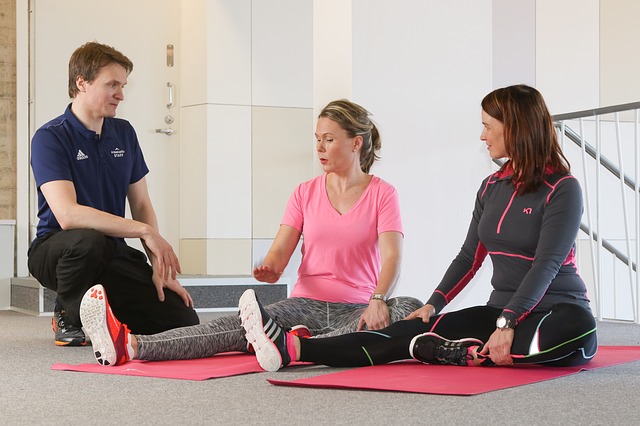Are You Conditioned?
Raising the Standard
Before you answer the question in the heading, you will first have to identify what I mean by Conditioned as it relates to Fitness and Health. Too often when I engage people about the subject of getting healthy or in shape, I find that they have not clearly defined what being healthy looks like for their lifestyle. Aside from clinical biomarkers such as blood pressure, A1c blood sugar test, cholesterol levels etc. (which are important to determine the impact of your fitness program), the question is how would the reality of being physically conditioned add to your current lifestyle? In other words, what would you be able to do when in peak condition that you couldn’t do at your current fitness level?
As we think about the question it takes on a new shape, it becomes alive and requires a standard that you have to set and compare with where you are. Just as athletes need to condition themselves in sport specific roles, so does the person working a 9-5 role. In the conversations I engage in I would ask “why do you want to get in shape”? I get so many different answers: “I want to keep up with my kids”, “I want to get healthy”, “I want to look good on the beach”. The list goes on. The problem I usually have as a practitioner with that response is that the individuals can actually do all those things now. That standard is different from a person that has to learn how to walk again. Or a person that wants to run a full marathon twice or three times a year and has never done that before. In these cases, he or she has now approached a goal that is beyond their current level of fitness and would need to raise his or her standard to meet this goal.
Let's explore some definitions on the subject of Exercise vs Conditioning:
Exercise Vs Conditioning
Exercises defined: as a noun
1. Activity requiring physical effort carried out esp. to sustain or improve health and fitness.
(Dictionary. com)
Training defined: as a noun
1. The action of teaching a person or animal a particular skill or type of behavior.
2. The action of undertaking a course of exercise and diet in preparation for a sporting event.
(Dictionary.com)
Conditioning defined: as a verb
1. Have a significant influence on or determine (the manner or outcome of something).
2. Train or accustom to behave in a certain way or to accept certain circumstances.
(Dictionary.com)
When it comes to achieving optimal health, it's about standards. What standards do you have for your life and how does your health influence those standards?
You have to determine what you need to allow you to live a healthy and peaceful life and the quality of that health will allow you to give that same peace, joy, and happiness to your fellow man.
What I want to illustrate here is that there is a difference between exercise and training, even though both words are used interchangeably when it comes to fitness, health, and wellness. It is important to understand the process of both.
Exercise, as you have seen above, is the required physical effort to sustain or improve your health and fitness levels. There are many schools of thought that have argued what the quality of that health and fitness level looks like, from research studies and advancements in science.
But what I would like to ask you is; what are your standards for your health and fitness level?
Training is defined as the action of teaching a person or animal a particular skill or type of behavior. One of the main differences between exercise and training is, exercise is focused on more maintenance of physical efforts of your health, and training is the process of becoming conditioned for a specific task.
To bring this contrast more to life, below is a list of characteristics of Exercise versus Training.
Exercise
• General
• Long-term focus
• Flexible
• Intensity level is variable
• Mainly low-impact
• Brief inconsistency may not affect results
Training
• Specific
• Short-term focus
• Rigid
• Intensity precise
• Moderate to the high intensity required
• Inconsistencies will affect results
If you get anything out of this article it should be this: Don’t just exercise……get conditioned!
Author Bio: Jon Paul Dennis (CPT, HHC, BKP, SET, MMACS, PES) is the founder of For-Life Fitness & Conditioning and a highly effective Sports Performance Professional and Specialist in Exercise Therapy combining over 15 years of education, research and different fitness modalities to provide a quality healthcare service. He helps individuals reach their health/fitness goals in areas such as: Sports Strength & Conditioning, Pre, and Post-Rehabilitation, achieving optimal weight, reducing food cravings, increasing sleep, reducing chronic pain and maximizing energy. His client centric approach ensures all healthcare stakeholders and practitioners are coordinated in an effort to provide optimal health for the individual.
Want to get in contact with Office Worker Health? I’d love to hear from you. Please leave a comment in the section below. For more about what we do check out the blog: Office Worker Health . It would be great if you can follow the Facebook, Twitter and Instagram pages and be sure to join the LinkedIn group. You can also subscribe to the YouTube channel!
Yours in health,



